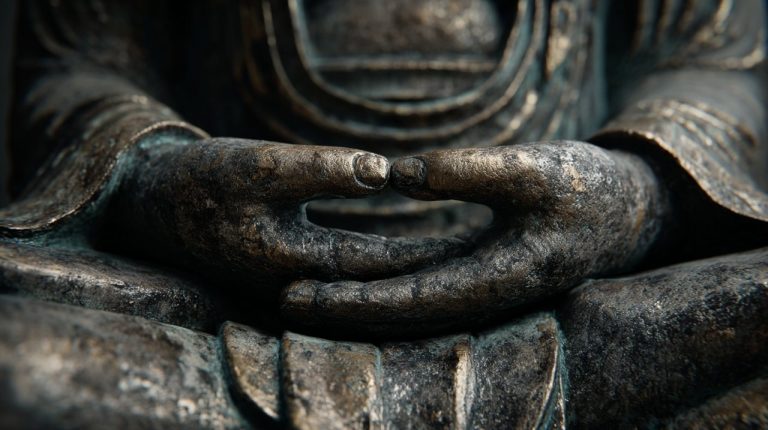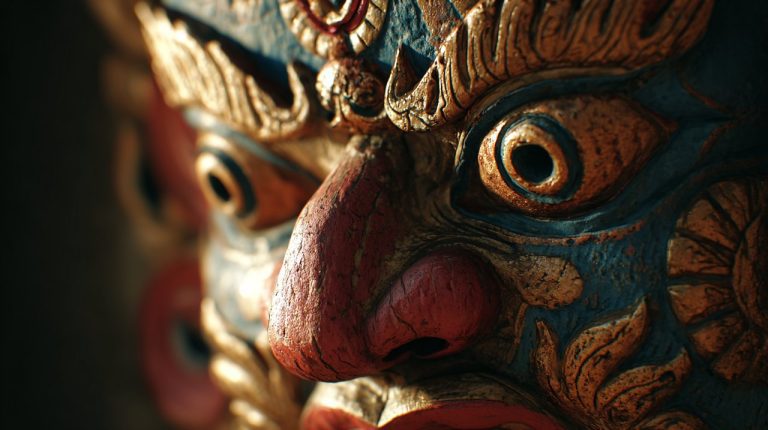What Do Elephants Represent: A Journey Through Their Profound Cultural and Spiritual Symbolism
Elephants, titans of the terrestrial world, possess a unique standing. Their colossal physical presence is matched by the intricate complexities of their inner lives. With the largest brains among land animals, they navigate existence through sophisticated social structures, deep emotional capacities, and legendary memory.
This blend of immense power and surprising gentleness has captivated human imagination for millennia. It allows elephants to transcend biological reality, becoming potent symbols across virtually every culture. To understand their enduring significance is to examine the diverse ways humanity has interpreted their essence. This exploration delves into how these majestic creatures signify within the collective human consciousness, offering insights into their varied interpretations as key elements of animal symbolism.

Elephant Symbolism Across Diverse Cultures
The elephant’s enduring mystique extends across continents and historical epochs. Its symbolism resonates with remarkable consistency, yet also presents intriguing variations. From India’s vibrant spiritual landscapes to Thailand’s serene ancient temples, and even within Western thought, these creatures are revered as more than mere animals. Understanding these distinctions requires a comparative lens, revealing how different societies interpret similar traits.
Ancient Civilizations: Deified Presence
In foundational narratives of many ancient civilizations, elephants transcended their zoological classification. They were not merely wild creatures; they were deified, revered as living manifestations of divine power, wisdom, and auspicious fortune. This elevation reflects a deeper human need to connect with nature’s might through symbolic representation.
India: Wisdom and Obstacle Removal
In India, elephant symbolism is deeply woven into daily life and spiritual practice. Ganesha, the beloved elephant-headed deity, exemplifies this. He personifies wisdom, prosperity, and crucially, the remover of obstacles. This universal human aspiration finds a physical parallel in the elephant’s immense strength and ability to clear paths. Beyond divinity, the Indian elephant has long signified royalty, formidable power, and abundant prosperity, celebrated in grand processions and intricate temple artistry. Its meaning here is inextricably linked to both spiritual fulfillment and societal flourishing, a testament to the animal’s perceived ability to overcome challenges and bring abundance.
Buddhism: Purity and Enlightenment
Within Buddhism, the white elephant holds a particularly sacred status. Legend recounts Queen Maya, Buddha’s mother, dreaming of a pristine white elephant entering her side before his birth. This omen signified purity, wisdom, and the auspicious dawn of enlightenment. This ancient narrative establishes a powerful symbolic pairing between elephants and Buddhism, representing the unwavering mental fortitude required on the path to spiritual awakening. The rarity and purity of the white elephant underscore the spiritual journey it symbolizes.
Africa: Strength, Longevity, and Leadership
Across diverse African traditions, the elephant stands as a venerable emblem of strength, exceptional longevity, sagacious wisdom, and decisive leadership. The structure of their matriarchal societies mirrors deeply held values of communal bonds and familial unity. Unlike the divine deification seen in some Eastern cultures, African symbolism often emphasizes the elephant’s tangible attributes and social organization as metaphors for human societal ideals. This provides a contrast to how different cultures derive meaning from similar animal characteristics.
Christianity: Virtues and Allegory
The elephant’s role in Christian doctrine is less central compared to Eastern faiths. Its symbolism occasionally emerges in allegorical contexts. Here, it often represents virtues such as patience, temperance, and purity, sometimes alluding to spiritual cleansing or renewal. This allegorical use, rather than direct religious veneration, highlights a fundamental difference in how various major religions integrate natural symbols. For a broader view on how different cultures assign meaning to animals, consider the concept of Chinese Zodiac animal signs.
Core Attributes: Power, Wisdom, Memory
Despite diverse cultural interpretations, elephants universally embody several core attributes. These resonate deeply with the human experience, offering a blueprint for understanding key concepts. This consistency across cultures suggests a shared human perception of these animals’ intrinsic qualities.
- Strength and Stability: Their immense size and inherent resilience make them natural symbols of unwavering power and steadfastness. They represent a monumental presence that grounds the spirit.
- Wisdom and Intelligence: Elephants are known for their vast memory and sophisticated problem-solving abilities. They symbolize deep wisdom and intelligent, deliberate decision-making.
- Longevity and Good Fortune: With lifespans often comparable to our own, elephants naturally symbolize extended life and prosperity. Many traditions consider them bringers of good luck.
- Family and Community: Robust matriarchal herds and fierce protective instincts vividly underscore the importance of family bonds, unwavering loyalty, and strong communal support.
The elephant, in its silent grandeur, demonstrates that true power combines might with wisdom, memory, and the strength of enduring bonds.
The Elephant’s Trunk: Directional Symbolism
Among the elephant’s distinctive features, its remarkably versatile trunk holds unique symbolic weight in art and iconography. Intriguingly, the trunk’s direction subtly but significantly alters the nuanced meaning ascribed to the elephant symbol itself. This variation offers a fascinating case study in how minor physical attributes can carry distinct cultural interpretations.
Trunk Up: Prosperity and Protection
Depictions of elephants with their trunks raised are almost universally interpreted as auspicious. This posture signals good luck, abundant prosperity, and blessings. It evokes an elephant trumpeting in triumph or joyous welcome, actively inviting positive energy and fortune. This symbolic stance shares a conceptual similarity with other protective emblems like the Pixiu, both seen as active conduits for positive energies.
- Such a depiction is more than ornamentation; it is a deliberate invocation. A statue of an elephant with its trunk raised is frequently positioned in homes or businesses. It serves as a powerful talisman, believed to attract wealth and usher in positive fortune.

- This gesture symbolizes the active ‘spraying’ of good fortune. It also acts as a formidable protective charm against negative influences.
Trunk Down: Grounding and Fertility
Conversely, the elephant with its trunk down, though less prevalent in popular iconography, carries distinct symbolic meanings. This posture suggests a grounded, contemplative, and deeply rooted energy. It represents a different facet of strength—one drawn from stability and connection to the earth.
- This stance often links to fertility, evoking the image of the elephant drawing vital energy from the earth. It fosters a deep connection to the natural world, similar to how certain Red Agate properties are associated with grounding and vitality.
- Other interpretations connect it to longevity, the gradual accumulation of wisdom, and the quiet strength needed to overcome challenges through unwavering patience.
- Ultimately, this pose signifies a ready, grounded stance for action or a deep, intrinsic stability. It is a powerful emblem for enduring foundations and steadfast endurance.
Elephants in Modern Consciousness: Dreams and Decor
The spiritual resonance of elephants extends beyond ancient texts and formalized religious practices. It permeates contemporary lives through personal experiences, dreamscapes, and the pervasive presence of symbolic objects. This enduring presence highlights how ancient symbols adapt and find new relevance in modern contexts.
Totem Animals, Dreams, and Inner Guidance
For many, the elephant emerges as a powerful totem animal or a compelling presence in dreams. It serves as a conduit for guidance and inner insight. This personal connection contrasts with broader cultural interpretations, offering a subjective layer to elephant symbolism meaning.
- If the elephant animal totem resonates with your spirit, it often signals an innate connection to wisdom, formidable strength, and unwavering loyalty. This alignment might serve as an impetus to embrace latent leadership qualities or to deepen familial bonds.
- The dream meaning of an elephant can be remarkably rich. These powerful dream encounters often speak to suppressed memories, deep wisdom, inner strength, or the daunting prospect of confronting a large, overwhelming situation. An elephant in a dream can thus call for recalling something vital or approaching a significant challenge with patience and resolute resilience.
Adornment and Artifacts: Wearable Symbols
The human desire to symbolically ‘carry’ the elephant’s powerful virtues has led to its ubiquitous presence in personal adornment and home decor. These objects serve as tangible reminders of intangible qualities, much like healing crystals are worn for their perceived properties.
- For the wearer, an elephant necklace or bracelet often serves as a personal talisman. Its meaning is deeply rooted in protection, good luck, and inner strength. Gold elephant jewelry might amplify these associations, symbolizing prosperity and a connection to the divine. The choice of such an item often reflects a personal aspiration for balance and harmony, similar to the intentions behind other spiritual adornments. Buddha Bracelet Meaning: A Guide to Energy Flow and Inner Harmony
- An elephant charm typically invokes blessings of fortune, wisdom, and steadfastness. It acts as a miniature embodiment of these virtues, a compact reminder of desired qualities.
- Within the home, an elephant ornament is frequently incorporated for its positive feng shui implications. It is believed to imbue the household with stability, prosperity, and a pervasive sense of protection.
Integrating Elephant Wisdom for Personal Growth
Understanding what elephants represent spiritually transcends academic curiosity. It offers an opportunity to actively integrate their venerable qualities into our lives, fostering personal growth and spiritual enrichment. This shift from observation to application marks a deeper engagement with symbolic meaning.
Cultivating Elephant Qualities
The spiritual elephant stands as a potent reminder of timeless virtues. We can cultivate these qualities in our daily existence, drawing inspiration from their natural behaviors.
- Memory and Learning: Like the adage that elephants never forget, we are encouraged to diligently learn from past experiences. This involves carrying forward valuable lessons without succumbing to the burden of regret.
- Patience and Perseverance: Their deliberate movements and remarkable lifespans testify to the enduring value of patience in long-term goals. They embody the quiet, potent strength of consistent effort.
- Empathy and Compassion: The strong bonds within elephant herds, their intricate social structures, and poignant mourning rituals underscore the critical importance of empathy, community, and genuine care.
- Strength and Gentleness: Elephant personality traits exemplify how immense strength can coexist harmoniously with gentleness and a nurturing spirit. This balance offers a model for integrated personal power.
The Elephant as a Mirror to Self
The meaning behind elephants serves as a powerful mirror, reflecting a deeper understanding of ourselves and our intricate place in the world. They are living metaphors for unwavering resilience, the enduring power of love within familial bonds, and the quiet dignity of wisdom. This symbolic reflection encourages us to tap into our innate strength, cultivate compassion, and access the vast reservoir of wisdom within us. For other powerful symbols of protection and steadfastness, one might consider the cultural significance of the Dragon Turtle. The Dragon Turtle: A Psychological Anchor for Prosperity and Protection
Whether encountered in a dream, admired in a statue, or contemplated in thought, the elephant offers a timeless, universally resonant message. It urges us to navigate life with deliberate purpose, cherish our connections, and carry accumulated wisdom with humility and grace. The question—what do elephants represent in collective human consciousness—is not a simple definition. It is an invitation to embody the virtues they symbolize: a testament to the wisdom, strength, and compassionate bonds at the heart of nature and the human spirit.
💡 Frequently Asked Questions
Elephants universally symbolize immense power, steadfastness, profound wisdom, intelligence, vast memory, longevity, good fortune, and the critical importance of family bonds and communal support.
An elephant with its trunk raised symbolizes good luck, abundant prosperity, and protection, inviting positive energy. Conversely, a trunk down signifies grounded energy, fertility, longevity, quiet strength, and steadfast endurance.
In India, elephants are linked to wisdom (Ganesha), prosperity, and royalty. In Buddhism, the white elephant signifies purity, wisdom, and enlightenment. In African traditions, they represent strength, longevity, wisdom, and leadership. In Christianity, they can symbolize patience, temperance, and purity.
Understanding elephant symbolism encourages cultivating virtues such as learning from past experiences (memory), practicing patience and perseverance, fostering empathy and compassion for others, and balancing immense strength with gentleness in daily life.







